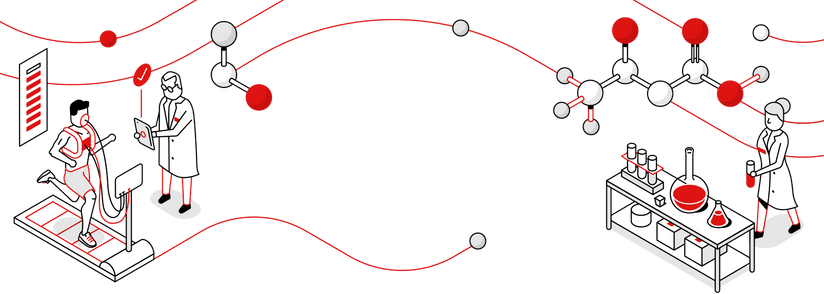Exogenous ketone supplements (EKS) have garnered significant attention in the athletic community for their potential to enhance performance and recovery. A comprehensive review titled “Exogenous Ketone Supplements in Athletic Contexts: Past, Present, and Future” delves into the evolution, mechanisms, and effects of these supplements in sports.
Understanding Ketone Bodies
Ketone bodies, primarily acetoacetate (AcAc) and β-hydroxybutyrate (βHB), are produced during periods of low carbohydrate availability, such as fasting or adherence to a ketogenic diet. They serve as alternative energy substrates and influence various physiological processes, including inflammation modulation, oxidative stress reduction, and gene expression regulation. In athletic contexts, ketone bodies can alter substrate utilisation by reducing glucose consumption in peripheral tissues, inhibiting fat breakdown in adipose tissue, and decreasing protein degradation in skeletal muscle.
The Rise of Exogenous Ketone Supplements
The quest to harness the benefits of ketone bodies without strict dietary restrictions has led to the development of EKS. These supplements, available as ketone salts and ketone esters, as well as ketogenic compounds like 1,3-butanediol and medium-chain triglycerides, enable a rapid increase in circulating AcAc and βHB levels, a state termed ‘acute nutritional ketosis’ or ‘intermittent exogenous ketosis’.
Potential Benefits and Current Evidence
Some studies suggest that EKS may enhance endurance performance, aid recovery, and mitigate overreaching in athletes. However, the evidence is mixed, with many studies not observing significant benefits of acute nutritional ketosis on performance or recovery. The review emphasises the need for further research to clarify these effects and to understand the variability in responses among individuals.
Mechanisms of Action
The proposed benefits of EKS are linked to their ability to provide an alternative energy source during exercise, potentially sparing muscle glycogen and enhancing endurance. Additionally, ketone bodies may influence signalling pathways related to muscle protein synthesis and degradation, inflammation, and oxidative stress, which could impact recovery and adaptation processes.
Considerations and Future Directions
The review highlights several factors that influence the effectiveness of EKS, including the type of supplement, dosage, timing of ingestion, and individual variability. It also discusses potential negative effects, such as gastrointestinal discomfort and impaired high-intensity performance due to reduced glycolytic flux. Future research should focus on optimising supplementation protocols, understanding the mechanisms underlying individual responses, and exploring the long-term effects of EKS use in athletes.
Conclusion
While exogenous ketone supplements offer a promising avenue for enhancing athletic performance and recovery, current evidence is inconclusive. Athletes and practitioners should exercise caution and consider individual responses when incorporating EKS into training and competition routines. Ongoing research will be crucial in elucidating the potential benefits and limitations of EKS in sports contexts.

